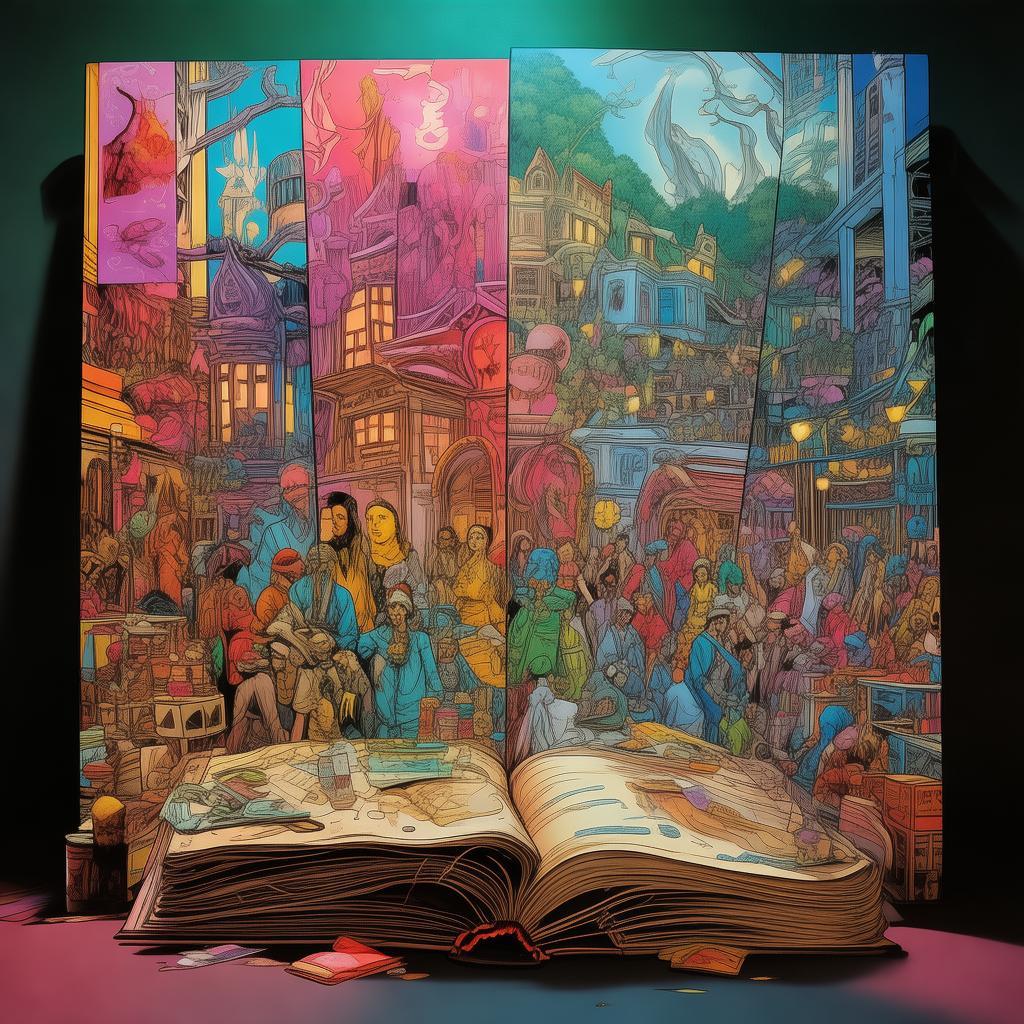Whispers of the Past: The Redemption of the Vanquished
In the twilight of his days, old Tellus stood before the flickering flames of his hearth, the fire casting long shadows on the walls of his modest abode. His eyes, once the sharp gaze of a warrior, now held the weariness of countless battles and the wisdom of countless tales. It was here, in the hallowed silence of his study, that he found solace in the art of storytelling, weaving the fabric of his life into the tapestry of myth and legend.
The tale he now spun was not of his own exploits, but of a vanquished warrior, a man who had once been a hero of the realm, his name etched into the annals of history. Yet, as the years had passed, his legend had dimmed, overshadowed by the rise of new heroes and the fall of empires. Tellus, with a heart heavy with empathy, sought to breathe life back into the story of the vanquished, to show the world that even the most defeated souls could find redemption.
The warrior, known as Eirik, had been a great general, his name a byword for bravery and valor. But in the final days of a great war, he had made a fateful mistake, one that had cost him his kingdom and his honor. Banished from his home, he wandered the lands, a specter of his former self, his name a curse on the lips of many.
Tellus began his tale with the rise of Eirik, his rise to power, the battles he had won, and the empire he had built. He painted a picture of a man driven by ambition, a man who, in his quest for greatness, had lost sight of what truly mattered. "Eirik was a man of iron and fire," Tellus intoned, his voice deep and resonant. "But in his iron will, he forgot the softness of compassion."
As the story unfolded, the listeners were drawn into the world of Eirik, feeling the weight of his failures and the pain of his fall. The tale was not just of a man's downfall, but of the human condition, the struggle between ambition and humility, between power and compassion.
But Tellus did not leave his audience in despair. He wove into the narrative the whispers of redemption, the glimmers of hope that had flickered in Eirik's eyes even as he was stripped of his titles and his kingdom. "In the solitude of his exile," Tellus continued, "Eirik learned the true value of life, the importance of love and friendship, and the power of forgiveness."

The listeners were transported through the warrior's journey, witnessing his transformation from a man of war to a man of peace, from a conqueror to a teacher, from a vanquished to a redeemer. Tellus spoke of Eirik's return to his homeland, not as a conqueror, but as a humble man who sought to rebuild what he had destroyed, to heal the wounds of war, and to teach the children of his former kingdom the lessons he had learned.
The story reached its climax as Eirik faced the man who had betrayed him, the man who had been his closest ally and who had turned against him in his hour of need. The confrontation was tense, filled with emotion and the weight of history. "Eirik could have taken his revenge," Tellus said, "but he chose a different path. He forgave his betrayer, and in doing so, he freed himself from the chains of his past."
The listeners were silent, the fire's glow reflecting in their eyes. Tellus paused, allowing the silence to hang heavy in the air. "And so, the vanquished became the redeemer, a story of how even the darkest of souls can find their way back to the light."
The tale ended with a reflection on the power of storytelling, the way in which it could transform hearts and minds, the way in which it could bring hope to the most desolate of souls. "In the end," Tellus concluded, "it is not the sword that wins the battles, but the story that wins the hearts."
As the fire died down and the last embers were extinguished, Tellus rose from his chair, his eyes glistening with the warmth of a story well told. He looked around the room, at the faces of his audience, their expressions filled with emotion, their hearts touched by the tale of the vanquished warrior.
He knew that his story had reached its intended audience, that it had resonated with the listeners, that it had touched them in ways they might not have expected. In the silence that followed, Tellus felt a sense of fulfillment, a sense that he had achieved what he had set out to do: to tell a story that would inspire, that would remind them that even in the darkest of times, there was always hope, that even the vanquished could find redemption.
✨ Original Statement ✨
All articles published on this website (including but not limited to text, images, videos, and other content) are original or authorized for reposting and are protected by relevant laws. Without the explicit written permission of this website, no individual or organization may copy, modify, repost, or use the content for commercial purposes.
If you need to quote or cooperate, please contact this site for authorization. We reserve the right to pursue legal responsibility for any unauthorized use.
Hereby declared.









